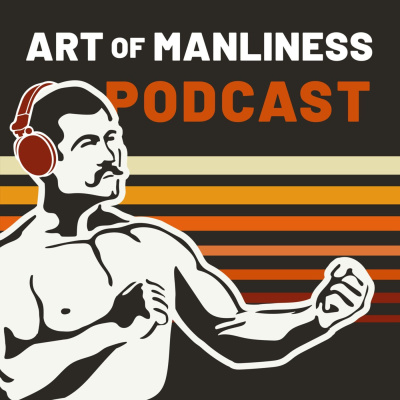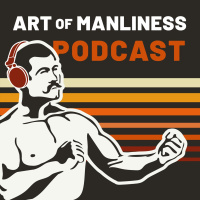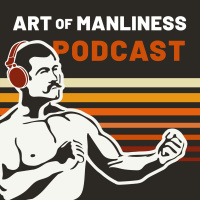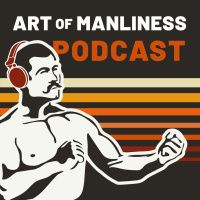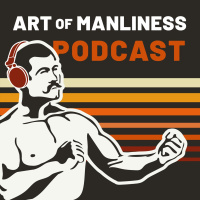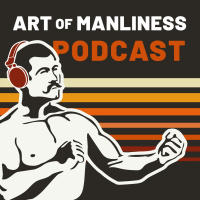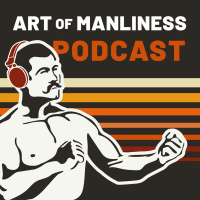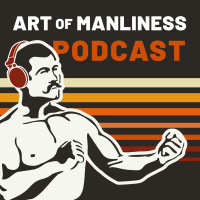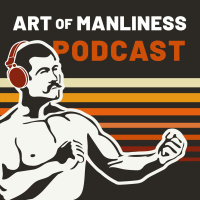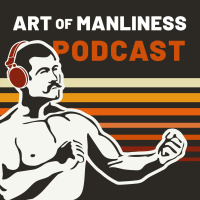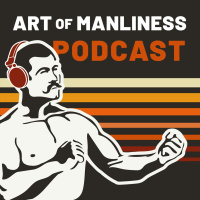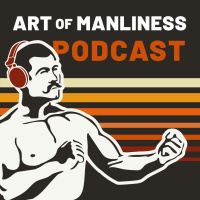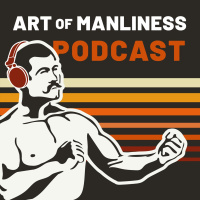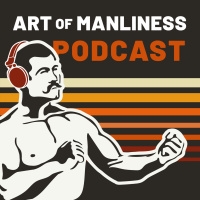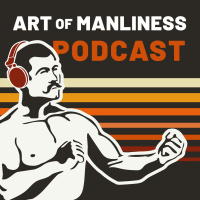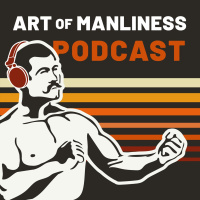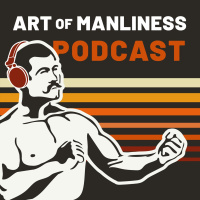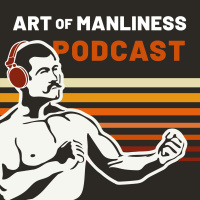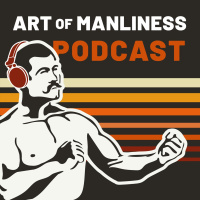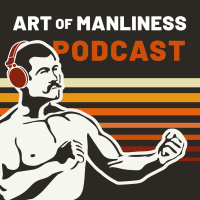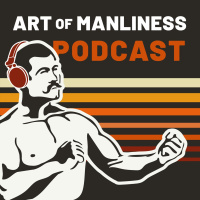Sinopsis
Podcast by The Art of Manliness
Episodios
-
#577: An FBI Agent's 6 Signs for Sizing People Up
20/01/2020 Duración: 35minEvery day, we have to make choices on whether we can trust someone or not. If we make the wrong choice, it could mean a failed relationship or business partnership and all the emotional and financial costs that follow. My guest today has spent his career sizing people up in high stakes situations. His name is Robin Dreeke, he spent two decades working as a behavioral analyst for the FBI, and in his new book, Sizing People Up: A Veteran FBI Agent's User Manual for Behavior Prediction, he shares the tips everyone can use in determining whether or not someone is trustworthy. We begin our conversation discussing how Robin's latest book builds off the work he did in The Code of Trust and the consequences of sizing people up incorrectly. Robin then shares the overarching framework he recommends using when you want to figure out if you can trust someone or not. We spend the rest of our conversation digging into the six specific signs you should look for when you're figuring out if you want to enter into a persona
-
#576: A Treasure Trove of American Philosophy
15/01/2020 Duración: 46minWhen you think of philosophy, you probably think of ancient Greece or 18th century France. You probably don't think of America. But this country also birthed its own set of philosophical luminaries, and my guest today had a unique encounter with them. When modern day professor of philosophy John Kaag was a graduate student at Harvard, he was dispirited and struggling personally and professionally. But thanks to a chance encounter with an elderly New Englander, he discovered an abandoned library in New Hampshire full of rare first edition books of the great works of Western philosophy, many of which were owned by quintessentially American thinkers like Ralph Waldo Emerson and William James. Kaag began cataloging the books, and in the process, uncovered the intellectual history of American philosophy and its responses to big existential questions like, "Is life worth living?" Today on the show I talk to John about his experience with this abandoned library in the woods of New Hampshire, and with the authors of
-
#575: Counterintuitive Advice on Making Exercise a Sustainable Habit
13/01/2020 Duración: 46minIt's a new year and like many people, you may have set a goal to exercise more regularly. But like most people, you've set this goal before only to give up on it after only a few weeks. Why is it so hard to make exercise a habit? And what can you do to make it stick? My guest today argues that more willpower and discipline isn't the answer. Instead, you need to completely change the way you think about exercise. Her name is Michelle Segar, and she's a behavioral scientist and the author of No Sweat: How the Simple Science of Motivation Can Bring You a Lifetime of Fitness. We begin our conversation discussing Michelle's counterintuitive finding that common reasons for exercising like losing weight or even getting healthier aren't effective motivations. And she shares research on how our ideas of what exercise should look like, as well as the propensity towards an all-or-nothing mindset, also set us up for failure. We then discuss why sheer discipline isn't very effective for staying on track either, and why
-
#574: The Power of Bad — Overcoming the Negativity Effect
08/01/2020 Duración: 47minHave you ever been heaped with praise, only to ignore it in favor of focusing on the lone piece of criticism you received? That's the power that bad things wield, and it's a power that humans need to learn how to both harness and mitigate. My guest today lays out both sides of that coin in a book he co-authored with psychologist Roy Baumeister. His name is John Tierney and the book is The Power of Bad: How the Negativity Effect Rules Us and How We Can Rule It. We begin our conversation discussing how much stronger bad is than good, and how many good things it takes to offset a single bad one. We then dig into the implications of the fact that bad things have a much stronger impact than good ones, including how you really only need to be a good enough parent to your kids, the best way to deliver criticism to others, and why religions that emphasize Hell have historically won more adherents than those that focus on Heaven. We also talk about how negativity is contagious and why it's true that one bad apple can
-
#573: Why You Don't Finish What You Start (And What to Do About It)
06/01/2020 Duración: 49minHow well did you do in completing projects last year? Not just work projects, but also personal projects surrounding family, fitness, or hobbies. If you didn't accomplish as much as you'd like, then maybe you need to change up your mindset and tactics in the new year. My guest today has written a guide to making those changes. His name is Charlie Gilkey and he's a former Army officer with a PhD in philosophy who's spent over a decade studying productivity, writing about it on his website Productive Flourishing, and coaching clients in what he's learned. He now has a book out as well: Start Finishing: How to Go From Idea to Done. Charlie and I begin our conversation going through the most common roadblocks that prevent people from completing their projects, including following other people's priorities and dealing with what he calls "head trash." We then discuss how we waste a lot of time doing what Charlie calls "thrashing' and what we can do to overcome it. We then dig into why you sometimes have to quit t
-
#572: The Unexpected Upsides of Being a Late Bloomer
30/12/2019 Duración: 44minThere's an unspoken timeline that people supposedly need to follow to have a successful life: be a good student in high school, get into a good college, and then get a good job right after you graduate. But you've probably met successful people whose lives didn't follow this kind of linear arc and neat timeline, and maybe yours didn't either. Their young adult years weren't very auspicious, and they didn't come into their own and find their bearings until after college, or even much later. My guest today explores the upsides of this kind of trajectory in his book: Late Bloomers: The Power of Patience in a World Obsessed with Early Achievement. His name is Rich Karlgaard and we begin our conversation discussing how he defines a late bloomer and a few examples of some famous late bloomers in history. We then dig into how late bloomers got a bad rap and how society became increasingly obsessed with finding success at a young age. Rich then walks us through the disadvantages of being an early bloomer and the adv
-
#571: The Voyage of Character
23/12/2019 Duración: 42minGood character is hard to define in the abstract, but easy to identify when it's embodied in the lives of great individuals. In order to illuminate what worthy character looks like, my guest today has written a book which consists of profiles of 10 of history's most notable admirals, marking out both their inspiring and flawed qualities, as well as how these qualities intersected with their ability to lead. His name is Admiral James Stavridis, he served as the commander of US Southern Command, US European Command, and NATO Supreme Allied Commander Europe, and is now the dean of the Fletcher School of Law and Diplomacy at Tufts University. On today's show, the admiral talks about many of the figures in his latest book, Sailing True North: Ten Admirals and the Voyage of Character, including Themistocles, Sir Francis Drake, Horatio Nelson, and Chester Nimitz. We take a look at what these individuals did well, what they did poorly, and how their characteristics, decisions, qualities, and overall moral compass imp
-
#570: St. Augustine's Real-World Spirituality for Restless Hearts
18/12/2019 Duración: 58minDo you feel restless? Have you ever lied in bed at night looking up at the ceiling wondering "Is this all there is to life?" Or have you ever achieved a big goal in life only to feel let down? Over 1500 years ago, Catholic bishop, philosopher and theologian Augustine of Hippo had those same feelings of angst and wrote down some insights on how to deal with them and they're just as relevant today as they were then. My guest today has written a book about Augustine's ancient insights on the anxiety of modern life and how this famous Catholic theologian has had a profound impact on Western philosophy, including among 20th-century existential philosophers. His name is James K. A. Smith and his book is On the Road with Saint Augustine. We begin our show discussing Augustine's biography and his oft-overlooked influence on atheistic existential philosophers like Heidegger, Sartre, and Camus. We then dig into the big ideas that Augustine hit on his famous book Confessions including how to deal with existential angs
-
#569: How to Perform Your Best Under Pressure
16/12/2019 Duración: 46minWhen Don Greene was a springboard diver in high school and college, his performances were erratic -- sometimes they'd be amazing and sometimes embarrassing. None of his coaches could explain why that happened to him, so Don set out to find the answers himself. After serving as an Army Ranger and Green Beret, and getting his PhD in sports psychology, Don has spent decades coaching Olympic divers, professional athletes, race car drivers, opera singers, classical musicians, and Wall Street traders in how not to choke under pressure. He shares the principles he uses as a stress coach in Fight Your Fear and Win: Seven Skills for Performing Your Best Under Pressure. Today we talk about those skills, beginning with why people choke in the first place, and what's going on in your mind when that happens. We then talk about the fundamentals of managing performance anxiety and staying in right brain flow, including making adrenaline work for instead of against you, getting your mind centered, ignoring distractions, and
-
#568: The Untold Story Behind the Famous Robbers Cave Experiment
11/12/2019 Duración: 49minIn the summer of 1954, two groups of 8- to 11-year-old boys were taken to a summer camp in Oklahoma and pitted against each other in competitions for prizes. What started out as typical games of baseball and tug-of-war turned into violent night raids and fistfights, proving that humans in groups form tribal identities that create conflict. This is the basic outline of a research study many are still familiar with today: the Robbers Cave experiment. But it's only one part of the story. My guest dug into the archival notes of this famous and controversial social experiment to find unknown and unreported details behind what really happened and why. Her name is Gina Perry and her book is The Lost Boys: Inside Muzafer Sherif's Robbers Cave Experiment. We begin our conversation by discussing what the Robbers Cave experiment purported to show and the influence the experiment has had on social psychology since. We then discuss the similarities between head researcher Muzafer Sherif's ideas about the behavior of boys
-
#567: Understanding the Wonderful, Frustrating Dynamic of Friendship
09/12/2019 Duración: 01h15minFriendship is arguably the most unique type of relationship in our lives. Friendships aren't driven by sexual attraction or by a sense of duty, as in romantic and familial relationships, but instead are entirely freely chosen.My guest today says that's part of why friendship is both uniquely wonderful and uniquely challenging. His name is Bill Rawlins, he's a professor of interpersonal communication, and he's spent his career studying the dynamics of friendship and authored several books on the subject, including Friendship Matters. Bill and I begin our conversation discussing why friendship is often taken for granted, and what makes friendships unique from other types of relationships. We then explore the four particular tensions that arise in friendship: the tension between independence and dependence, affection and instrumentality, judgement and acceptance, and expressiveness and protectiveness. We also talk about how these tensions manifest in male friendships versus female friendships, and whether it's t
-
#566: How to Have a Hyggely Christmas and a More Memorable New Year
04/12/2019 Duración: 30minThe holiday season is upon us. It's a time for getting cozy, making memories, and looking forward to the new year ahead.My guest today has plenty of research-backed insights on how to take each of those things to the next level. His name is Meik Wiking, and he's the CEO of the Happiness Research Institute and the author of The Little Book of Hygge: Danish Secrets to Happy Living, as well as The Art of Making Memories: How to Create and Remember Happy Moments. We begin our discussion exploring the Danish concept of hygge, which is the art of getting cozy, and how it helps Danes survive their long, harsh winters. Mike also discusses his research on how to create lasting memories. We then combine these ideas to explore how lighting, food, scent, and more can help you inject more hygge into the holiday season, and make Christmas and the coming year your most memorable yet.You'll want to grab a hot cocoa and wrap yourself in a blanket before cozying up to this show.Get the show notes at aom.is/cozy.See Privacy Pol
-
#565: Stillness Is the Key
02/12/2019 Duración: 55minAccording to my guest today, many of the world's most eminent leaders, thinkers, athletes, and artists have one thing in common: they cultivate stillness in their lives. His name is Ryan Holiday and in his latest book, Stillness Is the Key, he highlights how great individuals have used stillness to do great things. We begin our discussion with how Ryan describes stillness, what it means to find stillness in mind, body, and soul, and how an individual can have stillness in one of these areas, but chaos in another. Ryan shares what we can learn about stillness of mind from JFK's handling of the Cuban Missile Crisis and how journaling and limiting media inputs can help us foster our own mental stillness. We then discuss the myth that relationships hold you back in life, and how they can in fact help you find both greater achievement, and stillness of soul. We also discuss what we can learn from Winston Churchill on how to find physical stillness, and why having hobbies is so important to finding balance in life.
-
#564: Assault Your Assumptions Through Red Teaming
27/11/2019 Duración: 56minWe live in an age of disruption. Companies that were once stalwarts are overtaken by small, plucky upstarts. Our personal lives can also be disrupted. We lose a job or a business fails. My guest today says that instead of waiting to be disrupted by outside forces, you're better off using techniques developed by intelligence agencies and the military to disrupt yourself first. His name is Bryce Hoffman and he's the author of the book Red Teaming: How Your Business Can Conquer the Competition by Challenging Everything. We begin our show discussing what red teaming is and the history of its development, from wargaming by 19th century Prussians to more sophisticated techniques developed by the US military during the war on terrorism. Bryce and I discuss the hidden biases that red teaming is designed to counter, and then get into the specific red teaming techniques you can start using today to challenge your assumptions, stress-test your strategies, identify unseen threats, and make better decisions in both your p
-
#563: How to Develop Your Nature Instinct
25/11/2019 Duración: 46minOur ancestors were able to navigate long distances, find water, and even predict the weather simply by looking at their environment. My guest today says we still have this nature instinct inside of us and with a little practice, we can revive it. His name is Tristan Gooley, he's an outdoorsman and author, and his latest book is The Nature Instinct: Learn to Find Direction, Sense Danger, and Even Guess Nature’s Next Move—Faster Than Thought. Today on the show we discuss how humans have the ability to simply look at something in nature and immediately see direction, time, or weather conditions. While modern humans have lost this ability, Tristan makes the case that with some practice, anyone can re-learn it. We then discuss how learning how to read nature intuitively makes us more engaged with our surroundings and able to see more significance in our environment. Tristan then shares signs to look for in nature to anticipate animal behavior, find water, and predict the weather. After listening to this show, you'
-
#562: How Boxing Can Fight Parkinson's Disease
20/11/2019 Duración: 40minIf boxing and Parkinson's disease are thought of together, it's usually in terms of the former causing the latter.But my guest today makes the case that boxing workouts can actually be used to fight Parkinson's disease. His name is Aaron Sloan, he's a registered nurse, the owner of Engine Room Boxing gym here in Tulsa, OK, and the founder of Ready to Fight, a boxing fitness program catered specifically to those suffering from Parkinson's disease. We begin our conversation with an overview of what Parkinson's is, as well as the fact that men are significantly more likely to get it than women. Aaron then shares what the research says about the best treatments for Parkinson's, why vigorous, high-intensity exercise is one of the most potent remedies for it, and why he argues that boxing is the gold standard when it comes to the type of exercise that's most effective in slowing down the disorder. Aaron shares how he started Ready to Fight based on this premise, and a few stories of how the lives of Parkinson's pat
-
#561: Get With the Program
18/11/2019 Duración: 56minAll of us are a part of teams at work and in our community. Even our families are teams. And most of us serve as both members and leaders of these teams. How then can we be our best in both roles?My guest today has spent his career gaining on-the-ground answers to this question through his experiences as a Marine and special operator in the military and a leadership trainer of corporate and athletic teams as a civilian. His name is Eric Kapitulik, and he's the founder of the team and leadership development company The Program and the co-author of a book with the same name.Today on the show Eric and I take a deep yet punchy dive into the keys of team and leadership development, and how these principles can be applied whether you're leading a family, a sports team, or a business. We begin our conversation discussing the biggest problems Eric sees in the teams he works with, why resolving most of these issues begins with the definition of core values, and how someone can figure out what their core values are. Er
-
#560: The Magic of Walking
13/11/2019 Duración: 44minWalking. It can seem, well, rather pedestrian. But my guest today makes the case that walking can act as a gateway to explore memory, meaning, and what it means to be human. His name is Erling Kagge, he’s an adventurer and philosopher, and we had him on the show last year to discuss his book Silence (that's episode 433). Erling’s latest book is called Walking, and we begin our conversation discussing the connection between bipedal locomotion and silence and how walking instead of driving can help slow down time and deepen our memories. Erling makes the case that embracing voluntary hardship can enrich your life and how walking can be a step towards that. He then shares why going for a walk can help you solve problems, why most great philosophers were also committed walkers, what the Adam and Eve story can teach us about the need for exploration, and how walking can be one of the most radical things you can do in the modern age.You'll want to take a walk after listening to this show, or maybe you'll walk while
-
#559: How to Handle Difficult Conversations
11/11/2019 Duración: 01h02minAsking for a raise. Disagreeing with your boss. Telling your neighbor that their dog's barking is bothering you. Talking about money with your spouse. Debating politics with a friend. These are all difficult conversations fraught with anxiety, anger, and awkwardness. Many people just avoid them, but my guest says that with the right framework, you can handle even the most pitfall-laden exchanges. Her name is Sheila Heen, she's spent twenty years developing negotiation theory and practice as part of the Harvard Negotiation Project, and she's one of the co-authors of the book Difficult Conversations: How to Discuss What Matters Most. Sheila starts things off by sharing the most common difficult conversations people encounter professionally and personally and the most common unhelpful ways people deal with them. She then explains how every difficult conversation actually has three hidden conversations going on, how people confuse the impact of what others say and do with their intentions, how you can acknowledge
-
#558: The Strenuous President
06/11/2019 Duración: 48minIn the first year of his presidency, the press used Theodore Roosvelt's name in connection with the word "strenuous" over 10,000 times. He was known as "the strenuous president," and with good reason: from his youth, TR had lived and preached a life of vigorous engagement and plenty of physical activity. Today on the show Ryan Swanson, professor of sports history and author of The Strenuous Life: Theodore Roosevelt and the Making of the American Athlete, discusses not only how TR was shaped by what was called "the strenuous age," but how he shaped it in turn by promoting sports, and participating in athletics himself. We begin our discussion with what was going on during the late 19th century that got people interested in what was then called "physical culture." We then turn to the beginning of Roosevelt's introduction to vigorous exercise as a boy, and how he famously decided to make his body. We discuss TR's fitness routine when he went to Harvard, and how his becoming a fan of football there led to him sup
